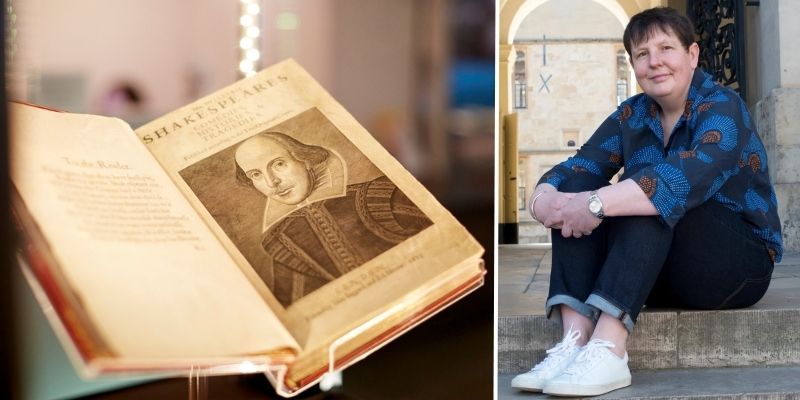
A distinguished academic is visiting the University of Leeds to give a public lecture as Shakespeare’s First Folio turns 400 years old.
Bestselling author and scholar Professor Emma Smith will give a free talk in her hometown of Leeds as the University displays its own copy of the First Folio – the first collected edition of 36 plays by William Shakespeare.
The event on Wednesday 3 May is part of Folio400, an international project celebrating the 400th anniversary of the book’s publication in 1623.
Emma Smith, Professor of Shakespeare Studies at the University of Oxford’s Hertford College, said: “I am so excited to return home (if a little nervous my A level history teacher is planning to attend) to celebrate this fantastic book, the work of the University Libraries, and Leeds’ long history as a city of culture. A special invitation to anyone from Manston School in Crossgates, or from Abbey Grange!”
Taking place in the Rupert Beckett Lecture Theatre from 6-7pm on Wednesday 3 May, the talk will be followed by a drinks reception. Tickets are free and available to book on Eventbrite.
In the talk, Professor Smith will explore the stories of some of the book’s surviving copies, which have had unique journeys across the world. Many copies contain evidence of how they were used (and abused), with some showing how the plays were received in different theatres and others containing doodles and children’s drawings.
The First Folio and the Brotherton Collection
Lord Brotherton of Wakefield, a chemical industrialist who became one of the University’s most significant benefactors, acquired a copy of Shakespeare’s First Folio in 1924. He left it to the University, along with the rest of his exceptional library of rare books and manuscripts, on his death in 1930.
Brotherton's copy of the First Folio is especially well-travelled. It was once owned by the American businessman Theodore Vail who lived in New York, but now has a permanent home in Yorkshire.
This remarkable book is currently on display in the Treasures of the Brotherton Gallery, which is free to visit and open to all from 10am-5pm, Tuesday to Saturday.
Members of the public can also join Professor Smith and experts from the University’s School of English to view the First Folio and other rare books from the Brotherton Collection in a one-off exhibition before the talk, from 4.30 to 5.30pm in the Treasures of the Brotherton Gallery on Wednesday 3 May.
The University owns copies of the four different early editions of Shakespeare’s plays from the 1600s. All four will be on display, including the rarest of all, the Third Folio, many copies of which were destroyed in the Great Fire of London in 1666.
Also on show will be a 1619 copy of ‘A Yorkshire Tragedy’, which has Shakespeare's name on the title page but is probably by another writer. This play tells the gruesome story of a murder that took place in Calverley near Leeds in 1605.
Masud Khokhar, University Librarian and Keeper of the Brotherton Collection, said: “Making collections accessible for the benefit of the public is at the heart of the University of Leeds Libraries vision. We are very excited to welcome Professor Emma Smith, who is renowned for sharing the magic of books in an accessible and engaging way, to explore the incredible legacy of Shakespeare’s First Folio.”
Professor Emma Smith
Professor Smith, who was born and brought up in Leeds, is the author of the Sunday Times bestselling book, This is Shakespeare. She also holds the position of 2023 Sam Wanamaker Fellow at Shakespeare’s Globe.
Her other books include The Making of Shakespeare’s First Folio and Shakespeare’s First Folio: Four Centuries of an Iconic Book, both with second editions published for the anniversary in 2023.
Further information
For media enquiries, email University of Leeds Press Officer Mia Saunders at m.saunders@leeds.ac.uk.
Book your tickets for the talk with Professor Emma Smith on Eventbrite.
Visit the First Folio at the Treasures of the Brotherton Gallery, located in the Parkinson Building at the University of Leeds, open 10am to 5pm, Tuesday to Saturday.